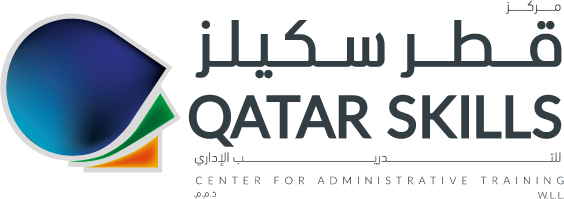array (
'course-city' =>
array (
0 => 48,
177 => 90,
226 => 77,
336 => 106,
371 => 107,
445 => 72,
486 => 108,
528 => 109,
551 => 110,
582 => 111,
604 => 71,
639 => 112,
673 => 78,
708 => 113,
798 => 70,
818 => 114,
875 => 115,
877 => 127,
910 => 116,
1054 => 117,
1226 => 118,
1324 => 91,
1402 => 119,
1492 => 120,
),
'course-language' =>
array (
0 => 49,
706 => 126,
),
'types' =>
array (
0 => 81,
),
'course-category' =>
array (
0 => 67,
127 => 64,
128 => 65,
129 => 58,
130 => 59,
131 => 66,
132 => 125,
133 => 60,
134 => 61,
135 => 123,
136 => 46,
137 => 51,
138 => 62,
139 => 85,
140 => 83,
141 => 76,
144 => 99,
145 => 57,
146 => 63,
149 => 97,
152 => 98,
157 => 124,
158 => 103,
159 => 104,
160 => 105,
161 => 55,
162 => 75,
163 => 53,
164 => 56,
172 => 100,
174 => 101,
178 => 122,
191 => 121,
240 => 102,
),
'course-type' =>
array (
0 => 73,
),
)Electrical Engineering for Non-Electrical Engineers
Course Overview:
Electricity has become a part and parcel of the modern society and we cannot think of leading a normal life in this world without electricity. Therefore, the knowledge of electrical engineering has become essential to successfully utilize the electrical energy and operate the electrical equipment not only for the electrical engineers but also for non-electrical engineers. In this course certain important aspects of electrical engineering required for nonelectrical engineers and the operating principles of some commonly used electrical devices will be dealt with.
Basic principles of protection of electrical components and human operators and safety procedures which are essential for non-electrical engineers are clearly explained.
The objective of this three-day course is to develop an understanding of basic electric circuits, electronic devices, and embedded software control that is encountered in their daily work for non-electrical engineers and other non-technical staff.
Course Objectives:
Upon completion of this course, the trainees will be aware and understanding of the following:
- To be familiar with Generation, Transmission & Distribution system
- AC and DC electricity principles
- Electrical equipment and instrumentation in industrial applications, including motors, transformers, switchgear, over current protection devices, and power/energy monitoring systems Equipment Operation
- Gain an understanding of the operating characteristics of all electrical equipment
- Electrical system concepts, including power quality, load factor and service factor, demand, peak demand, distinction between electrical energy and electrical power
- Understanding Electrical Drawings
- Safety: Electrical Code and Safety and arc flash hazards
Who Should Attend?
The training course is designed for fresh graduate engineers; any engineers would like to know more about electrical engineering.
Course Outline
Module (01) Overview of the Electric Power Systems
- A brief historical perspective
- Overview of course
Module (02) Basic Concepts
- Units and electrical quantities
- Voltage, current, resistance, power, energy, frequency
- Inductance and capacitance
- Ohm’s law, rms and average values
- Single and three phase systems
- Power factor
Module (03) Electrical Generation, Transmission and Distribution
- Various forms of energy
- Energy conversion
- Modern power station
- Coal-fired power plant
- Hydro and nuclear
- Impact on environment
- Solar, wind, geothermal
- Transmission of electricity
- Distribution
- Power demand and tariffs
- Power factor
- HVDC
Module (04) Electrical Distribution
- Power source
- Typical electrical power system
- Electrical distribution systems
- Substations
- Step down transmission
- Distribution substation
- Distribution feeder circuits
- Switches and circuit breakers
- Industrial and residential customers
- Types – radial, loop, network
- Network reliability (outages/power interruptions)
- Power transformers and distribution boards
Module (05) Electrical Measurements & Applications
- Electrical parameters – W/VA/VAr
- Measuring
- Power and energy measurement
- Smart metering
- Measuring voltages, currents and resistance
Module (06) Isolators, Fuses and Circuit Breakers
- Isolation
- Electrical faults
- Fuses
- Isolation, switching, tripping
- Circuit breakers
- Components of circuit breakers
- Medium voltage circuit breakers
Module (07) Electrical Rotating Machines – Ac and Dc
- Basic principles
- Machines
- DC motor operation
- Speed, flux and armature voltage
- Speed control
- Single phase AC motors
- 3-phase induction motor
- Synchronous machines
- Torque versus speed
- Efficiency and power factor
Module (08) Power Electronics and Applications
- Semi-conductor devices
- Motor controllers
- Rectifiers
- AC motors and soft starting
- Variable speed drives
Module (09) Power Quality
- Power quality problems
- Voltage variations
- Overvoltage and undervoltages
- Voltage imbalances
- Voltage and frequency variations
- Interruptions and surges
- Lightning and harmonics
- Harmonic compensation
Module (10) Customer Installations
- Metering and billing
- Tariff structures
- Connections
Module (11) Electrical Safety and National Electrical Codes
- Key elements of National Electrical Codes (AS3000/NEC/CEC/SANS)
- Electrical hazards
- Electrical shock
- Arc flash and burns
- Personal protective equipment
- Safety through better design and installation
- Work permits
- Authorisation personnel
- Training and first aid
- Legislation



